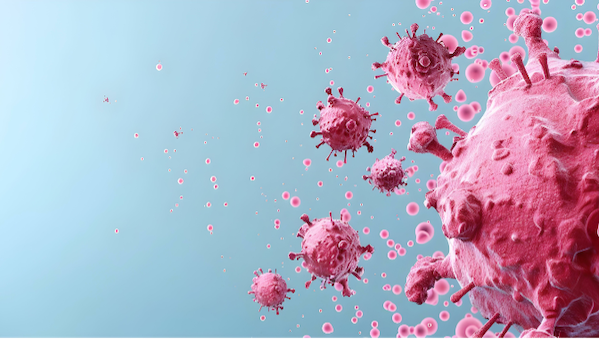Bristol Myers Squibb, Cellares Ink $380M Deal to Manufacture CAR T-Cell Therapies
April 24, 2024
Source: drugdu
 304
304
Don Tracy, Associate Editor
Per the agreement, Cellares will integrate and automate some of Bristol Myers Squibb’s CAR T-cell therapies into its Cell Shuttle program.
 Bristol Myers Squibb (BMS) and Cellares announced that they have agreed to terms on a $380 million deal to enhance the manufacturing capabilities for chimeric antigen receptor (CAR) T-cell therapies. According to the companies, the deal will see Cellares incorporate a number of BMS’ therapies into its Cell Shuttle platform, which includes fully automated systems. With the deal aiming to improve access to CAR T-cell therapies to patients at a faster rate, BMS will be given exclusive use of Cellares’ smart factories across the United States, Europe, and Japan.
Bristol Myers Squibb (BMS) and Cellares announced that they have agreed to terms on a $380 million deal to enhance the manufacturing capabilities for chimeric antigen receptor (CAR) T-cell therapies. According to the companies, the deal will see Cellares incorporate a number of BMS’ therapies into its Cell Shuttle platform, which includes fully automated systems. With the deal aiming to improve access to CAR T-cell therapies to patients at a faster rate, BMS will be given exclusive use of Cellares’ smart factories across the United States, Europe, and Japan.
“The agreement with Cellares is our latest step forward in support of our comprehensive strategy to unlock the full potential of CAR T therapy to deliver transformative treatments to as many patients as possible, as quickly as possible,” said Lynelle B. Hoch, president, cell therapy organization, Bristol Myers Squibb, in a press release. “Our collaboration with Cellares strengthens our existing internal manufacturing capabilities for CAR T-cell therapies by giving us access to the first end-to-end fully automated cell therapy manufacturing platform, to help ensure we meet the high demand for these differentiated treatments, now and in the future.”
Last August, BMS contributed to Cellares’ Series C funding, which aimed to launch an Integrated Development and Manufacturing Organization (IDMO) smart factory. At the end of fundraising, Cellares announced that it had raised a total of $255 million. The facility, which measures at approximately 118,000 square feet, is expected to be capable of producing 40,000 cell therapy batches per year. The facility, located in New Jersey, is expected to be ready for production later this year, marking the company’s third smart factory in the United States.1,2
"The creation of the first IDMO marks the beginning of a new era, in which cell therapies will finally be able to reach patients in need," said Fabian Gerlinghaus, CEO, Cellares, in a press release. "We've developed integrated technologies for the entire drug development and manufacturing life cycle. Now we're leveraging these technologies to offer global manufacturing services for the living drugs of the 21st century. Our partners are some of the best academics, biotechs, and large pharma companies in the world. We're enabling them to meet total patient demand, improve consistency and quality, lower manufacturing costs, and accelerate expansion to new markets."
CAR T-cell therapies have been approved to treat some forms of lymphoma as well as leukemia; however, only a small number of hospitals offer them because of the manufacturing process, which requires a rigorous certification process that enables specialty laboratories to produce them onsite.3
“This agreement with Bristol Myers Squibb is aligned with our strategy of establishing a global network of high-throughput, automated Smart Factories to meet the growing and worldwide demand for cell therapies,” said Gerlinghaus, in the press release. “We look forward to demonstrating how our innovative technology’s emphasis on standardization will accelerate commercial-scale manufacturing and worldwide deployment. Our collaboration with Bristol Myers Squibb and our collective expertise furthers our mission to accelerate access to life-saving cell therapies for patients globally."
Read more on
- Gusekirumab Injection Accepted by CDE, Multiple Pipelines Advancing Simultaneously March 4, 2026
- Yifan Pharmaceutical’s teriparatide injection has been accepted by the CDE (Center for Drug Evaluation), adding a new domestic player to the osteoporosis treatment field March 4, 2026
- //news.yaozh.com/archive/47318.html PD-1 sales surge March 4, 2026
- A major breakthrough! Roche’s oral BTK inhibitor achieves its third Phase III clinical trial victory, a game-changer in the multi-billion dollar MS (manufactured pharmaceuticals) market. March 4, 2026
- GB19 Injection Approved for Clinical Trials of Cutaneous Lupus Erythematosus March 4, 2026
your submission has already been received.
OK
Subscribe
Please enter a valid Email address!
Submit
The most relevant industry news & insight will be sent to you every two weeks.



